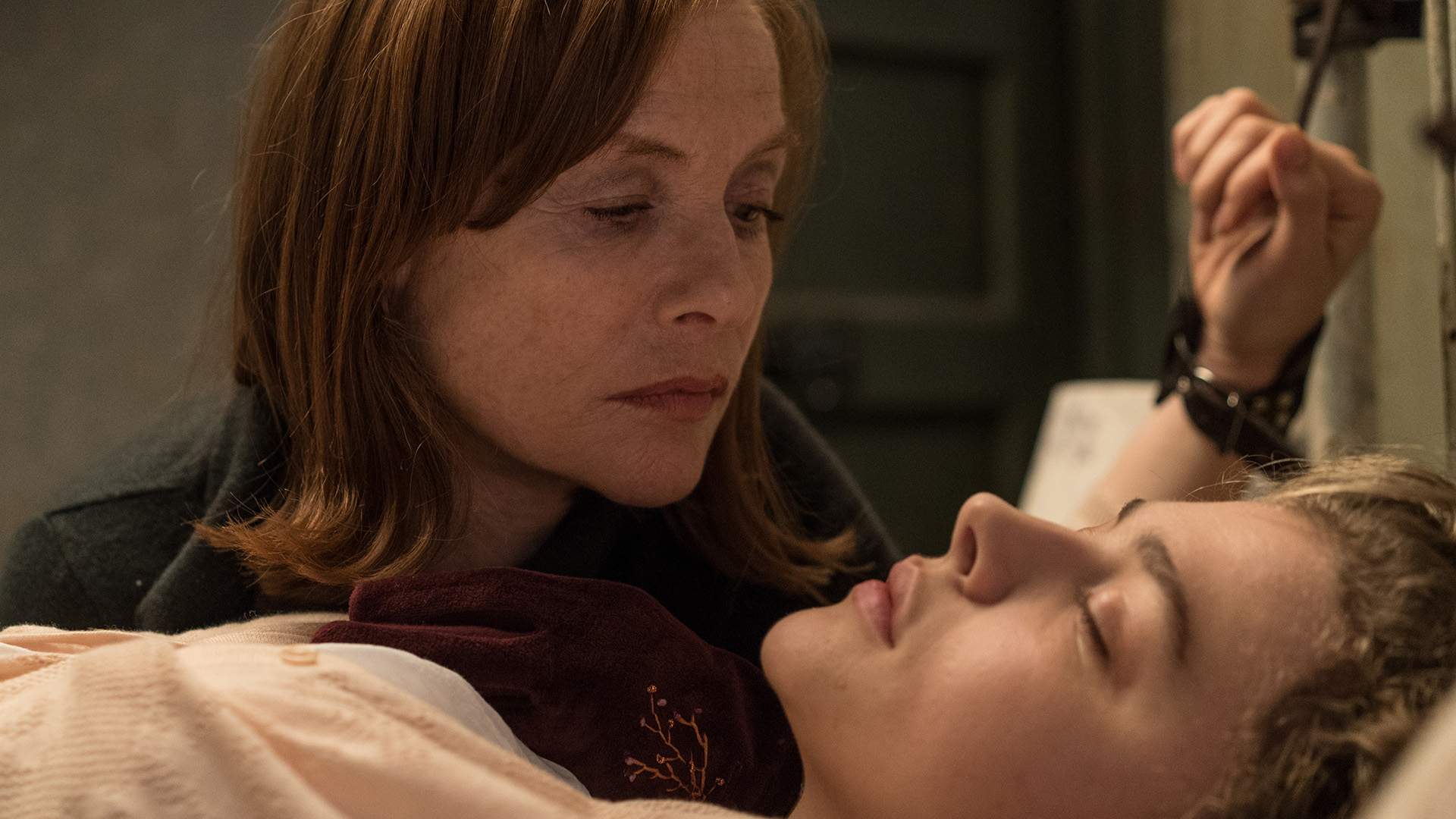Greta
This 90s-style stalker thriller is rarely better than average, but it's just unhinged enough to entertain.
Overview
A 90s-style thriller that'd sit comfortably alongside Single White Female, Greta boasts one major attraction. It's never a chore to watch the great Isabelle Huppert on screen, and it's hardly unusual to see the 2017 Oscar nominee dive into unsettling territory, but this stalker tale adds more than just another title to her resume. For anyone who's ever wanted to witness the French acting icon being wheeled out of an upmarket New York restaurant in a straightjacket, spit gum menacingly at Chloë Grace Moretz or dance gleefully in stockinged feet while waving a gun around, this is the film for you. And while Greta never lives up to its star's efforts, or to its twisty, pulpy, trashy potential, it's just unhinged enough to mostly entertain — as long as you're willing to go along with it.
As co-written by director Neil Jordan (Byzantium) and screenwriter Ray Wright (The Crazies), Greta's story is simple, involving a new NYC resident, a green handbag and a good deed gone wrong. When Frances McCullen (Moretz) spots an abandoned purse on a subway seat, she does the right thing and tracks down its owner. "Where I come from, that's what we do," the Boston native tells her incredulous roommate Erica (Maika Monroe), who suggests pocketing the contents instead. Serving up a fresh pot of coffee as a thank you, the eponymous Greta Hideg (Huppert) is immensely grateful for Frances' efforts, and a surrogate mother-daughter relationship springs between the two women. All's fine and well when they're rescuing a stray dog from the pound, catching up in the park and eating dinner together. But when Frances starts to doubt Greta's motives, the situation gets creepy very quickly.
The loneliness of 21st-century city living is a fascinating and endlessly relevant topic — we've never been more crowded physically and more connected virtually, yet feeling isolated has hardly been relegated to the past. A thematically slight film, that's not Greta's main concern, even as it follows two characters who are well acquainted with the aforementioned sensation. Greta and Frances' general emotional wellbeing barely troubles the movie, and nor do their backstories, other than giving the duo absent family members that they're clearly trying to replace with each other. Here, what's happening is more important than the reasons behind it. Indeed, why the titular character behaves the way she does is given much less attention than her crazy actions and reactions — and let's just say that she doesn't respond nicely to discovering that her new friendship is under threat.
As a result, Greta favours the mechanics of its cat-and-mouse narrative over any potential meaning. Really, the latter is straightforward: don't trust strangers. No really, don't. Not every film needs to overflow with depth, and there's a valuable truth in the movie's refusal to justify its craziness — sometimes horrible things happen without a satisfactory or extraordinary explanation, and sometimes seemingly ordinary, benign people are anything but. Still, the effect can be distancing. Although Huppert and Moretz both put in committed performances, there's very little reason to get invested in Greta's characters, their fight or their fates. Seasoned horror fans know this predicament well, with plenty of routine scary movies simply fine to journey from point A to point B without worrying about much of substance. To go through the motions, in other words.
What makes Greta engaging isn't the film's story, which is sparse overall while also proving off-kilter and even preposterous at times. Rather, it's the fact that Jordan knows exactly what he's doing. A standard handbag that's made well still catches the eye, after all, as Frances learns and Greta uses to her advantage. With genre flicks such as The Company of Wolves and Interview with the Vampire to his name, the Irish filmmaker is happy to make the most of genre conventions, executing the expected twists and slick, moody style with a confidence that occasionally veers into winking at the audience. He's taking his cues from his antagonist: leaving something average yet alluring enough in plain view and tempting audiences to try their luck.





